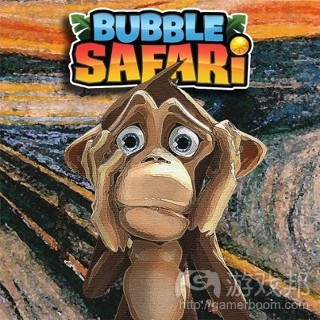总结2012年社交游戏发展的10大经验教训
作者:Patrick Miller
社交游戏并未衰败,而是在不断发生变化。
在GDC Online上,Playdom副总裁Steve Meretzky和Goko的Dave Rohrl带着好坏参半的事实拉开了他们每年一度的“过去一年社交游戏回顾”讨论会。一方面,Facebook上最出色的游戏是来自Zynga的《德州扑克》,这是一款发行于5年前的老游戏,拥有630万的日活跃用户(DAU)——可以说这是继《FarmVille》诞生以来该平台上DAU最低的头号Facebook游戏。
关于社交游戏的各种宣传已经倒向了手机游戏。另一方面,不管是Facebook用户数(最近已经超过10亿用户)还是社交游戏收益仍然在继续攀升着(游戏邦注:据休闲游戏协会预测到2014年社交游戏总收益将达到80亿美元)。
总之,社交游戏市场一直在快速改变着,如果开发者仍想在该领域继续发展,他们就必须尽快了解该市场在去年所发生的各种变化。
1.这里有大量的寻物解谜游戏(HOG)——我们仍在探索这种游戏类型
从Playdom的《时光花园》诞生以来,社交平台上已经涌现出了大量的寻物解谜游戏。Meretzky说道:“这是可下载的休闲游戏市场中最受欢迎的游戏类别,但是直到1年半以前它才真正出现在Facebook平台上。”
如果说是《时光花园》和Zynga的《Hidden Chronicles》将这种游戏类型带向了社交平台,这同时也意味着它们也更加接近了饱和状态。Meretzky指出Playdom之后发行的寻物解谜游戏《Blackwood and Bell》虽然呈现出了更黑暗且更困难的画面以及更复杂的功能设置(这款游戏是基于《时光花园》的代码基础,带有有限的章节和收集物,并在发行后添加了新的升级机制),但是其DAU却只有《时光花园》的五分之一。
Meretzky说道:“我们发现对于社交游戏来说,AAA级游戏非常重要,所以创造一款屏幕糟糕的隐藏目标游戏就等于制作一辆引擎脱节的保时捷。”此外,我们也很快便能够看到类型饱和情况的出现。“社交游戏的开发时间总是非常短,所以开发商们总是可以迅速填满这一领域。而就像Yogi Berra(游戏邦注:前美国职棒大联盟的捕手,总教练)所说的:‘没有人会愿意进入一家满是食客的餐馆。’”
2.Facebook硬核社交游戏仍然颇有市场
Rohrl说道:“Playdom的《复仇者联盟》属于Facebook游戏吗?我认为这款游戏巧妙地将Facebook元素与硬核游戏结合在一起。一般情况下病毒性对于硬核玩家并不会起任何作用,但是这款游戏却是例外。”
Rohrl继续说道:“很多人都认为硬核游戏将在今年彻底没落,但是似乎仍然有一大批忠实的玩家在支持着这类型游戏的发展。真正具有创造性的作品肯定能在此取得不错的成绩,像《Marvel》这类的硬核品牌自然也不例外。”
3.借鉴King.com的“传说”模式——但是也要留意其中所存在的风险
King.com在创造社交游戏时所遵循的“传说”模式(即将简单且让人上瘾的机制与线性故事发展结合在一起)便是他们的成功关键(如《泡泡女巫传说》,《麻将传说》)。Meretzky说道:“在每一款游戏上他们都遵循着相同的游戏框架,也就是玩过其中一款游戏的玩家必然知道另一款游戏的运作。正是基于这一‘传说’模式,他们有效地巩固了自己作为第二大社交游戏公司的地位。”
他还强调:“在可下载的休闲游戏市场中可行的机制同样也适用于社交游戏领域。”但同时他也警告道:“之前便已经出现过这种现象,即2009年至2010年CrowdStar所带来的变化,Wooga在2010年至2011年所带来的变化以及今年King.com所取得的成果。CrowdStar已经退出社交游戏领域,而Wooga虽然仍坚守着这一阵地,但却已经将自己的位置让给了King,所以我们目前所看到的格局也仍有可能发生改变。”
4.Facebook正为开发者打开新的病毒性渠道
Rohrl说道:“让我们来说说Zynga的《Bubble Safari》。与Facebook上30%的游戏一样,这是一款泡泡类游戏。但是现在它已经不是Facebook上最受欢迎的泡泡类游戏了,《泡泡女巫传说》取代了它获得了更大的关注。”
Rohrl指出,《Bubble Safari》为我们呈现了许多早前Facebook所不允许出现的病毒性向量,如用于向其他Facebook好友发送信息的“Select All”按钮,以及让玩家能够无需获得许可便向好友发送游戏请求的“无障碍垃圾邮件传播渠道”等。正是这些向量帮助《Bubble Safari》在DAU和收益排行中获得了第6位的好成绩。
Rohrl总结道:“病毒性与游戏发展息息相关,能够有效地维持一款游戏的玩家基础。而Facebook平台也正为开发者开启一些全新的渠道让他们能够更有效地利用这些病毒性元素。以前许多反对病毒性的用户也逐渐认可了这种趋势。所以开发者们可以大胆地面向自己的用户进行尝试,并观察他们会做出何种反应。”
5.制作成本飙升
随着社交游戏的制作成本的不断上升,新进的游戏工作室将面临更加艰难的竞争环境,摆在他们面前的准入门槛也相继抬高了。
Meretzky列举了Zynga的《FarmVille 2》:“之前我们一直在说这是一个不断趋于成熟的市场,而现在我便可以说这是一个成熟的市场了。而一旦市场趋于成熟,其最低制作成本也将随之提高。如果你正在考虑进入社交游戏领域,你就必须清楚它已经不再像以前那般容易亲近了。最后,切忌不要丢失游戏的灵魂。因为随着预算的提高以及团队规模的扩大,许多人很容易在此迷失方向。这时候你更应该稳妥地使用所有资源,并始终坚持着最初的游戏灵魂。”
6.强大的品牌也拯救不了无趣的游戏
《模拟人生社交版》和《CityVille》在发展顶峰时都曾获得了超过1千万的DAU,但是《模拟城市社交版》(拥有已建立的IP以及前面两款游戏的设计元素,并投入了大量预算)在发展顶峰时却只获得了160万的DAU。Rohrl说道:“强大的品牌也拯救不了无趣的游戏。品牌能够帮助你进行各种尝试,但是却不能帮助你实现与玩家的交流。如果开发者未能有效地进行规划或执行,最终也不可能取得好结果。”
Rohrl列举了一些使用已建立的IP但却出现了不同结果的社交游戏。就像《 Marvel Avengers Alliance》和《Zynga Slingo》都表现得不错,但是其它IP像《House M.D.》所面临的情况却不尽如意。Rohrl说道:“你必须确保你的游戏能够有效地呈现出授权作品的精髓,像《模拟城市社交版》便缺少了促使《模拟城市》大受欢迎的区域管理机制。”
7.敢于接触创新风险
Meretzky列举了一款相对难理解的社交游戏,《Triviador》——来自匈牙利的工作室THX Games PLC结合了《打破沙锅问到底》和《Risk》(游戏邦注:从古代流传下来的征服世界的游戏)而创造出来的一款游戏。《Triviador》的问题设置要求玩家必须输入一些数值答案(包括年份,数目等等),并根据玩家的回答与真实答案的接近度去提供奖励。
Meretzky说道:“以数字作为答案是一种非常简单且有效的设置。通常情况下当我们知道一个问题的答案时,问题总是显得非常简单,而当我们不晓得答案时,问题也会显得异常复杂。”
我认为开发者可以借鉴《Triviador》的世界设置,并避开他们所犯的错误——就像Meretzky认为将实时多人游戏与一些陌生且琐碎的内容结合在一起会让玩家感到乏味,并大大影响游戏的吸引力。
8.异步设计能够有效地发挥社交游戏的优势
Rohrl通过列举了FreshPlanet的《SongPop》以及Zynga的《Words With Friends》去阐述异步游戏设计对于社交游戏的积极影响——特别是当社交游戏开发者正尝试着进入手机游戏市场之时。Rohrl说道:“尽管凭借着《Words With Friends》Zynga取得了最大的成功,但是我们仍然不可忽视独立开发者所带来的影响。这是手机领域中一块活跃的类别,并且开发者也能够从Facebook上将游戏玩法移植到手机平台上。除此之外这也能够有效地维持游戏的用户留存。”
9.博彩游戏是块大领域,并且能够继续壮大
Meretzky说道:“在社交游戏领域博彩游戏已经不是什么新内容了,但是现在又涌现出了一些大热门的新游戏,如《Zynga Slingo》。Facebook上4款热门游戏中便有3款属于博彩游戏:《德州扑克》,《菲律宾太阳城》以及《疯狂老虎机》。
Meretzky宣称这种情形不是短暂的,它将长期存在于社交游戏领域:“它已经成为了社交游戏中一个非常容易亲近的领域,并且仍在迅速发生着变化。这类型游戏还拥有极高的每用户平均收入。因为人们总是习惯于为博彩游戏掏腰包。现在它们属于赌钱游戏,今后它们也仍将以赌钱游戏的姿态存在着——也许在未来的美国博彩也会成为一种合法的活动。”
10.实时PvP并不是理想的社交游戏模式
围绕着实时PvP机制的社交游戏能够创建起强大的社区,但是社交平台在游戏设计和玩家方面也为开发者树起了一些挑战。
Rohrl说道:“同步一对一游戏模式能够创建一个长久且富有激情的社区。但是这一模式并不适合Facebook平台——因为Facebook始终致力于让用户能够与未上线的好友进行交流,而该类型游戏的设计目的则是让玩家能够与在线的陌生用户进行同步交流。最后,这些游戏还会带来巨大的盈利挑战,因为玩家总是不会轻易为此掏腰包。”
(本文为游戏邦/gamerboom.com编译,拒绝任何不保留版权的转载,如需转载请联系:游戏邦)
10 Social Game Lessons from 2012
By Patrick Miller
Social games aren’t dying — they’re changing.
Steve Meretzky (Playdom, pictured) and Dave Rohrl (Goko) kicked off their yearly “Social Games Year in Review” session at GDC Online with a mixed bag of facts; on one hand, the top game on Facebook is Zynga’s Texas HoldEm Poker, a five-year-old game that, at 6.3m daily active users (DAU), has the lowest DAU for a #1 game on the platform since before FarmVille.
Much of the hype in social games has gone instead to mobile games. On the other hand, Facebook’s user count continues to climb (most recently surpassing 1 billion users), and social games revenue continues to climb as well, with the Casual Games Association forecasting total revenues hitting $8 billion by 2014.
In short, the market is changing rapidly, and devs will have to quickly learn from the last year of changes if they want to stay in the social games arena.
1. Hidden-object games (HOG) are here—and we’re still figuring them out
Starting with Playdom’s Gardens of Time, we’ve seen hidden-object games arrive on social platforms with a big splash. “This is the most popular category in the casual downloadable market, but it didn’t exist on Facebook until a year and a half ago,” said Meretzky.
But if Gardens of Time and Zynga’s Hidden Chronicles brought the genre to social games, they also may have gotten close to saturating it as well. Meretzky pointed out that Playdom’s later HOG release Blackwood and Bell launched with darker, harder hidden-object screens and a more-complete feature set (B&B was built upon the Gardens of Time codebase, which had time-limited chapters, collections, and an upgrade mechanic added to it after launch)—but it hit only 1/5th of Gardens of Time’s DAU.
“We learned that triple-A is important for social games; doing a hidden-object game and not getting the HOG screens quite right is like building a Porsche and not getting the engine quite right,” Meretzky said. Also, genre saturation can happen fast. “In social gaming, where development time is really short, so all the players can quickly fill up the space. It’s like that Yogi Berra quote: ‘That restaurant is so crowded, nobody goes there anymore.’”
2. Hardcore social games have an audience on Facebook
“Is Playdom’s Marvel Avengers Alliance a Facebook game at all? In my opinion, it does an excellent job integrating classic Facebook tropes into a hardcore game,” said Rohrl, “We think that virality doesn’t work with hardcore gamers, but it can.”
“It always seems like this is the year hardcore is going to be over, but it seems like there is enough of a constituency there to continue,” Rohrl said, “Real innovation can pay here, and core brands — like Marvel — can work.”
3. Learn from King.com’s “Saga” model—but second fiddle is risky
King.com’s “Saga” model of building social games—combining simple, addictive mechanics with a linear metagame progression shown on a map—is core to their success (see Bubble Witch Saga, Mahjong Saga). “They keep the metagame framework similar from game to game, so that players that come from one game will know how another works,” said Meretzky, “On the strength of their ‘Saga’ model, they’ve completely cemented their position as the #2 social gaming company.”
“The mechanics that worked in the casual downloadable market will probably work in social,” he noted, but then he offered a cautionary note: “We’ve kind of seen this phenomenon before with CrowdStar in 2009-2010, then Wooga in 2010-2011, and this year it’s King.com. CrowdStar has completely pivoted out of social gaming, and Wooga is still in it but has yielded their spot to King, so we’ll see if this turns into something sustainable.”
4. Facebook is opening up new viral channels for game devs.
“Let’s talk about Zynga’s Bubble Safari,” said Rohrl, “It’s a bubble game, like about 30% of the games on Facebook. Now, this Zynga game was not the first Facebook hit in its genre…at the end of the day, it’s Bubble Witch Saga with a lot of awesome virals.”
Rohrl pointed out that Bubble Safari demonstrated plenty of virality vectors that previously weren’t allowed on Facebook, like a Select All button for messaging Facebook friends, and a “frictionless spam channel” that let you send game requests to friends without asking for permission each time. These vectors led to Bubble Safari hitting #6 in DAU and revenue.
“Virals are immensely relevant for your game’s growth, and sustaining your player base,” Rohrl concluded. “The platform is opening up new channels to make these virals more efficient and effective. Many segments of the audience previously thought to be viral-averse are actually showing a pretty reasonable propensity. So it’s worth actually trying it out on your audience to see how they react.”
5. Production values are soaring.
Social games production values are skyrocketing, making it harder for new studios to compete as the minimum production value required to attract players increases the barrier to entry.
Meretzky’s example was Zynga’s FarmVille 2: “We’ve been saying this is a market that is maturing rapidly. Now we can say it’s a mature market, and as that happens, the minimum production values are going up. If you were thinking about going into social gaming, it’s not newbie-friendly any more. Finally, don’t lose the soul. As budget gets bigger and teams get bigger, it’s easy to lose track. Make sure to use those resources to benefit, not crush, the soul of the game.”
6. Established IPs won’t sell a bad game.
The Sims Social and CityVille both hit 10 million peak DAUs at their peak, but SimCity Social—a big-budget social game with an established IP and design elements from both games—peaked at only 1.6 million. “A great brand can’t sell a tired game,” Rohrl said, “A brand helps you with trial, but not conversation. If it’s not well-planned or executed, it’s not going to work out.”
Rohrl pointed to a series of social games that used established IPs with mixed results; Marvel Avengers Alliance did well, as did Zynga Slingo, but other IPs like House M.D. didn’t seem to do too well. “It’s really important that your game captures the essence of the license,” Rohrl said, “SimCity Social lacked the zone management that made SimCity a huge blast to play.”
7. Take innovative risks (and learn from them).
Meretzky showed a relatively obscure social game called Triviador, by Hungarian studio THX Games PLC that is something of a mix between Trivial Pursuit and Risk. Triviador’s question set requires players to type in numerical answers (years, amounts, and so on) and rewards players according to how close they were to the answer.
“Numeric trivia answers are pure genius,” Meretzky said, “Normally you know the answer, and the question is boringly easy, or you don’t, and it’s boringly hard.”
Devs can learn from what games like Triviador do well, and avoid what they do poorly—for example, Meretzky thinks that combining real-time multiplayer with strangers and trivia can make people feel stupid, which makes the game less popular.
8. Asynchronous games play to social games’ strengths.
Rohrl brought up SongPop (FreshPlanet) and Words With Friends (Zynga) as examples of how social games are well-served by asynchronous game design—particularly as social game developers try to move into the mobile games market. “Even though Zynga has achieved the most crushing success with Words With Friends, we are seeing real traction from indies,” said Rohrl, “This is a really vibrant category on mobile, and gameplay that works there seems to transplant well from Facebook. Also, it’s great for retention.”
9. Gambling is big—and could be bigger
“Gambling isn’t new to social games, but now the big boys are starting to move in. Case in point: Zynga Slingo,” Meretzky said. “Three of the top four games on Facebook right now are gambling games: Texas HoldEm, DoubleDown Casino, and Slotomania.
Meretzky contends that this isn’t just for the immediate future, but a longer-term play: “This has been a very indie-friendly area of social gaming, but that’s changing quickly. They’re high ‘ARPUed-out’ games. People are used to paying for gambling. Of course, it’s a play for money today, but it’s also a play for money tomorrow—to prepare for a possible future where gambling is legalized in the US.”
10. Real-time PvP isn’t ideal for social games
Social games built around real-time player vs. player mechanics can build strong communities, but the social platform poses devs major challenges for in both game design and audience.
“Synchronous head-to-head games actually build long-lasting, passionate communities,” Rohrl said, “But it doesn’t align particularly well with the Facebook platform, which is designed to allow you to interact with friends who are not online, and the games are designed to allow you to interact with strangers who are online. Finally, these games can pose major monetization challenges, since your players are often hard to extract revenue from.”(source:GAMASUTRA)









































 闽公网安备35020302001549号
闽公网安备35020302001549号